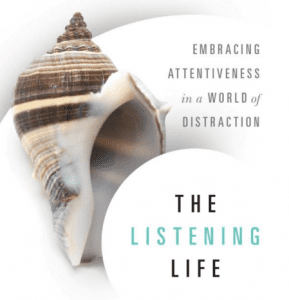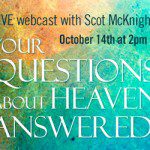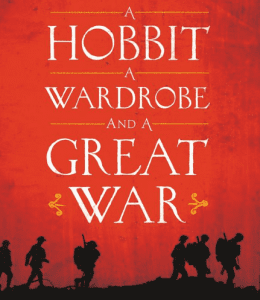 I make no claim to be complete or comprehensive or even fair to the book world. Each year I nominate Books of the Year on the basis of books I become aware of, not on the basis of a comprehensive list of books. So, here are my this year’s nominations. If you have others, speak up and give the New Year’s a push forward.
I make no claim to be complete or comprehensive or even fair to the book world. Each year I nominate Books of the Year on the basis of books I become aware of, not on the basis of a comprehensive list of books. So, here are my this year’s nominations. If you have others, speak up and give the New Year’s a push forward.
NT Wright, Paul and the Faithfulness of God, the 4th volume in N.T. Wright’s massive work on the New Testament and the Question of God. This “Paul” volume, however, is actually four volumes: We have the two-volume PFG along with a yet-to-be-published Paul and His Recent Interpreters and and a 4th volume anthology of his article-length studies called Pauline Perspectives 1978-2013. Because this brings to completion Wright’s four decades of scholarship on Paul, it is put forth as the Jesus Creed Book of the Year.
Second on my list is Molly Worthen, Apostles of Reason: The Crisis of Authority in American Evangelicalism. Molly Worthen has somehow shifted the scenery in the overworked terrain of scholarship about evangelicalism, and in so doing has revealed a clearer landscape: Neo-evangelicalism was a big tent as long as the leading voices were Reformed, the marginalized voices — Arminian, Nazarene, Restoration movement, and Anabaptists — were welcome as long as they mostly agreed but they were rarely given a strong place at the table, and she somehow seeks to show that the whole time it was also anti-intellectualist and populist yet committed as much as possible to intellectual inquiry. Hence, a crisis of authority — I’m not sure her crisis of authority was analyzed as carefully as it needs to be (and her stuff on Schaeffer reflects that), but on this I think she has described what I grew up in: behind the scenes of a big tent coalition, shaped by such leaders as Billy Graham and John Stott, the leading voices were not as welcoming because the agenda ran the show. I have no confidence neo-evangelicals will be listening to her.
With the publication of the 14th volume of Dietrich Bonhoeffer Works: Theological Education at Finkenwalde, 1935-1937 (Minneapolis: Fortress, 2013), we now have the complete set of Bonhoeffer’s works, a monumental effort and a colossal contribution to Bonhoeffer scholarship, to education, and to church life. This volume is edited by H. Gaylon Barker, Mark Brocker, and Douglas W. Stott. Speaking of Bonhoeffer, I must also mention Mark Thiessen Nation, Anthony Siegrist, and Daniel Umbel, Bonhoeffer the Assassin? Challenging the Myth, Recovering His Call to Peacemaking, a book that will surely create conversations for a decade about whether or not Bonhoeffer was involved in the conspiracy to assassinate Hitler.
Probably the most important book on pastoring a church in the last decade by Tim Keller, Center Church: Doing Balanced, Gospel-Centered Ministry in Your City (Zondervan, 2012). A full study of the theology and praxis of pastoral ministry focused on cities. Kuyperian in approach to church-state relations.
Mostly ignored, sad to say, Rupert Shortt’s sketch of persecution of the church, Christianophobia, is both well-written and a goldmine of largely unknown facts about the struggles of the church in the world today.
There is a sudden spate of books about Protestant liberalism, and I intend to do a series on this blog about them, but the way to get that set up is to nominate Roger Olson, The Journey of Modern Theology: From Reconstruction to Deconstruction (Downers Grove: IVP, 2013), as another Jesus Creed Book of the Year.
I have not blogged about this book, but I read it, enjoyed it immensely and think one church after another needs not only to read it but to embrace it. It is a book helping us see why we create lines of division, and it is by Christina Cleveland, Disunity in Christ: Uncovering the Hidden Forces that Keep Us Apart (IVP, 2013). She examines through social-scientific studies why we divide and what those same social-sciences can teach us about how to be more of a unity.
Greg Boyd’s Benefit of the Doubt: Breaking the Idol of Certainty (Baker, 2013) has given to us a book that both analyzes false certainty but in its place given us a robust, biblical and theological study of what relational faith is all about.
And Don Thorsen’s Calvin vs. Wesley is both a model of charitable writing and an education in itself (Abingdon, 2013).
The best biography I read this year is James Bratt, Abraham Kuyper: Modern Calvinist, Christian Democrat (Eerdmans). A complete examination of the political and theological forces at work in Kuyper’s own capable blend of journalism, theology and pastoring. Quite a remarkable achievement, this book. Although I should perhaps give this award to John Barry, Roger Williams and the Creation of the American Soul, a lucid and captivating study of the man who is behind all of American, if not Western world politics and religion.
The best commentary of the year comes from Dale Allison, in the mega-expensive ICC series: James: A Critical and Exegetical Commentary (T&T Clark, 2013). Dale Allison’s commentaries are marked by historical rigor, an expansive control of ancient texts, but this new work of his also has control of dimensions of the history of James studies in a way that no other commentary has.
If you are Anglican, you must read Alan Jacobs, The Book of Common Prayer: A Biography. A beautifully-written, anecdotally-sharpened, and historically-aware sketch of the ping pong game called the BCP, always being pushed from the left and the right — but still standing, slightly chipped, and now in all sorts of versions and mutations. But we still love it, and Jacobs tells that story.











